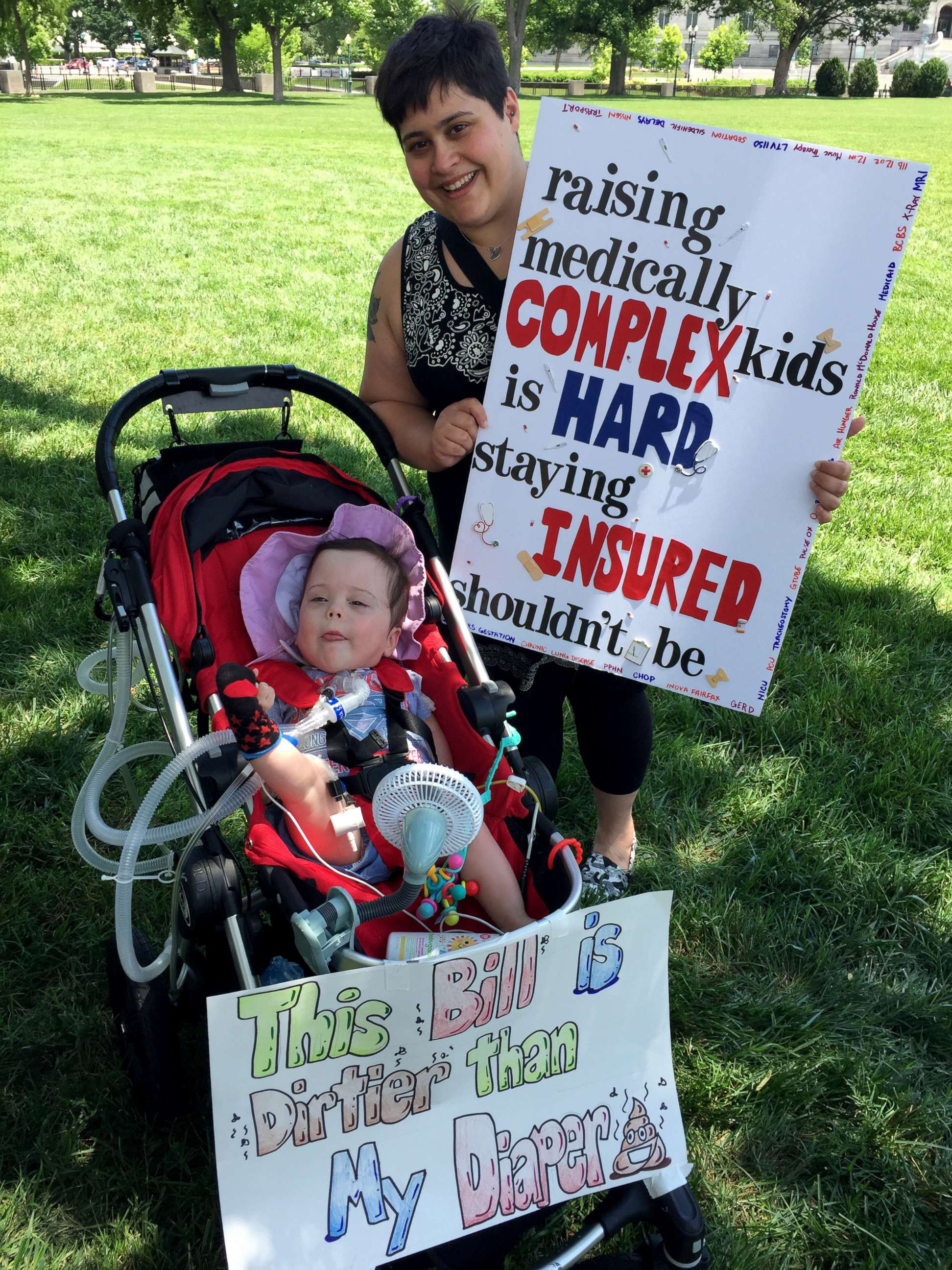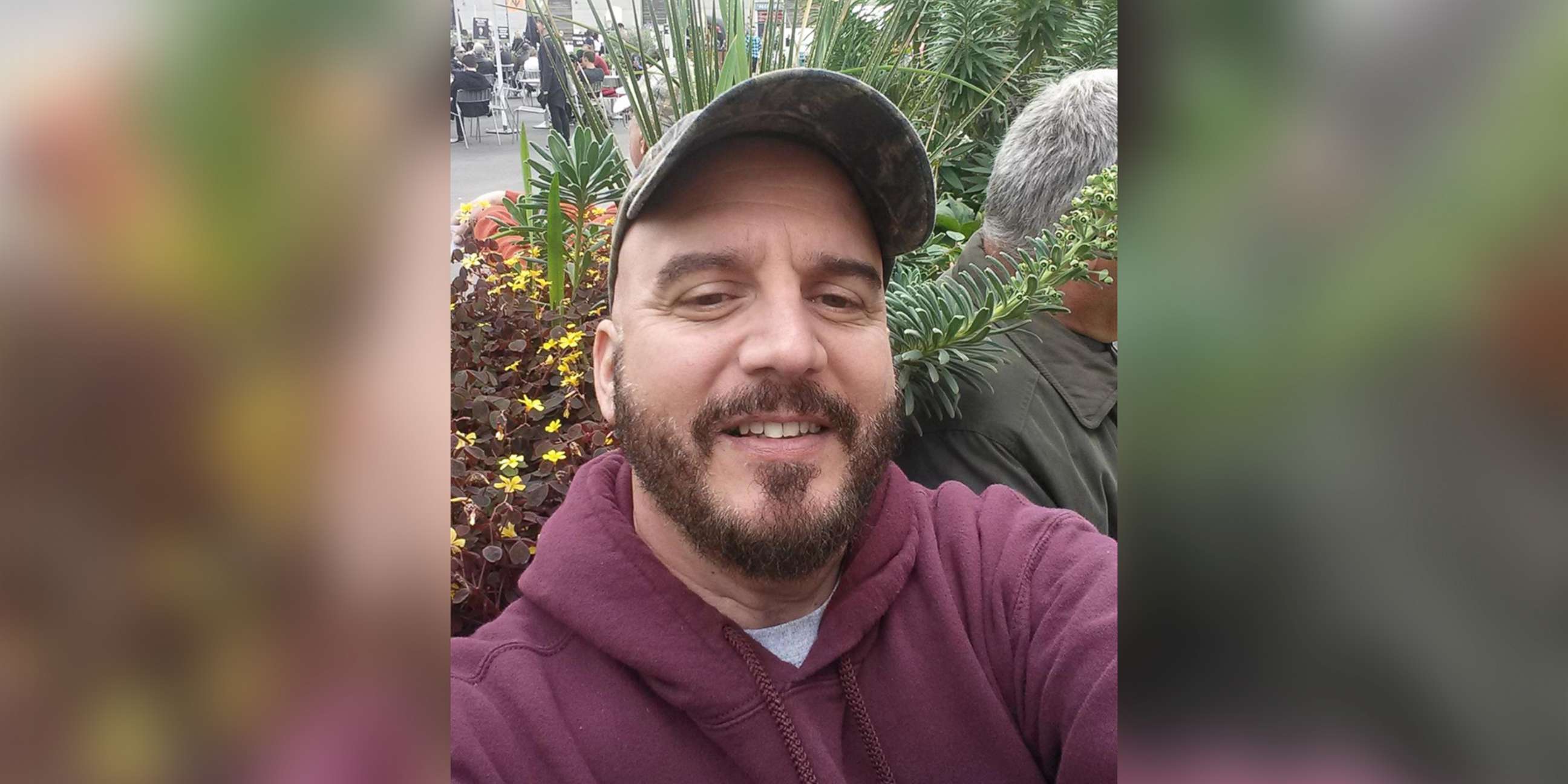Tales from patients who stand to lose a lot from GOP health bill
— -- Senate Majority Leader Mitch McConnell of Kentucky has decided to postpone a vote on Republicans’ legislation to repeal and replace the Affordable Care Act, also known as Obamacare, after concluding he does not have the votes to pass the bill this week before the chamber goes on recess for the Fourth of July holiday.
Several large patient and hospital groups, including AARP and the American Medical Association, expressed skepticism about the draft legislation when it was released last week in the Senate and ramped up their opposition to the bill after the Congressional Budget Office presented its formal analysis on Monday. The CBO report estimates that over the next 10 years, 22 million Americans would end up uninsured under the Senate plan, compared with trajectories under current law. The difference was largely a result of deep cuts to Medicaid in the proposal, as well as smaller subsidies in the form of tax credits to help people purchase insurance on the individual market.
In addition, the CBO outlined ways in which some of the sickest and most vulnerable Americans could be subject to changes in regulations that could dramatically increase out of pocket costs.
Many groups seemed to breathe a sigh of relief — for the moment — when leadership announced the vote would be delayed. Samantha McGovern works closely with March of Dimes, one of the many health care groups that came out against the bill. March of Dimes works on prenatal health, infant mortality and care for premature babies.
Her daughter Josephine was born premature, at 24 weeks, in 2016 in Northern Virginia. As a result of complications with the development of her lungs, Josephine had to be hospitalized for over a year — 407 days, to be exact.
McGovern and her husband both have steady incomes and robust health insurance, which he receives for their family through his job with the federal government. Still, she worries about the possibility of states’ receiving waivers that would allow them to overturn bans on lifetime and annual expenditure limits under the GOP plan.

“We are still very much in the thick of this,” she told ABC News. Josephine relies on feeding and breathing tubes. She will likely need round-the-clock care, even at home, for the next few years.
“When people talk about the lifetime maximums and annual caps, that absolutely terrifies me,” McGovern said. According to her, one of Josephine’s medicines costs $7,000 per month before insurance. “When would that go into effect? What about the millions of dollars we have already made our insurance company pay out? If this passes, is she suddenly not insured?”
The McGoverns benefited immensely from Medicaid during the first year of Josephine’s life and still do. The state of Virginia offered them institutional Medicaid, a program that helps patients and families cover long hospital stays for sick children, even if they have more income than traditional Medicaid enrollees do. The McGoverns’ private insurance did not cover home care, and they were able to apply for Medicaid help from the state for that as well.
“I never thought in a million years I would be someone who needs Medicaid,” said McGovern, who works in communications for a university in Washington, D.C. “I think what people don’t realize is what the actual cost of health care is … If our family was just a healthy family and were talking about an occasional cold, our insurance would be fine. But when you start talking about $26,000 a month, unless you are wealthy, you don’t have that money.” She estimated that as the cost of caring for her daughter these days, which includes a home ventilator and in-home nursing.
The CBO report indicates the Republican bill would shrink Medicaid funding by nearly $800 billion over the next 10 years. While there is some language in the bill to make sure disabled children are not included in newly established monetary caps per enrollee, it’s unclear to many families how the details would shake out. Would Virginia, for instance, still be able to offer that long-term hospitalization assistance to a family like the McGoverns, who have two steady paychecks, if its overall budget for Medicaid was cut dramatically?
“They are going to have to make hard decisions,” McGovern said. “How do you choose between someone’s grandmother and someone’s baby?”

Joe Merlino, 51, lives in Nevada and petitioned his Republican senator to vote against the bill. He was diagnosed with a rare form of larynx cancer six years ago and relied on individual insurance he was able to purchase on the state’s exchange.
He was misdiagnosed in 2009 and lost his job a year later. When he got a customer service job in 2011 with Southwest Airlines, he immediately made an appointment with a doctor, who found a 2 centimeter mass.
His surgery and recovery took him away from work for a few years, and he eventually lost his employer-based insurance again. He was living on disability insurance payments and was pleased to learn that — by just a matter of months — he qualified for government assistance through Medicaid.
Beginning in 2014, under Obamacare, states like Nevada, which opted for matching federal funds, could extend their Medicaid coverage to Americans earning less than 133 percent of national poverty level, regardless of whether they have children or are disabled. This is equivalent to an individual earning about $15,600 per year or less.
“Thank goodness for that Medicaid expansion, because without that, I would have never been able to get the procedures I needed,” he told ABC News. “I probably would have died.”

The federal dollars for those Medicaid expansion programs would dry up within the next four to six years under the Republican House and Senate plans. Merlino is currently covered through private individual insurance he purchases every month, which he prefers to Medicaid.
“It was just amazing and allowed me the freedom to see my doctor without having to jump through all the hoops,” he said, adding that he pays $160 per month, with a $500 out-of-pocket total for his plan. ABC News was not able to verify those numbers.
“There is a stereotype about ‘welfare queens,’ which I think is so horrible,” he said. “There are many different types of people on Medicaid, and you never know when you are going to be one of them, and that what I found out … the hard way.
“You can go from way up high to way down low as fast as a doctor’s phone call,” he added.
Marcy Shelton is relatively healthy for her age. At 62, she worries about that phone call and whether her premiums might go up as well.
“It’s all a little bit scary,” she told ABC News.
Shelton used to be a clerk taking bets at some of the nation’s fanciest horse racetracks in California, but over time her hours shifted and were cut back. Her union offered her early retirement but no insurance, so she bought individual coverage on the state exchange.

She went with one of the cheapest options, she said. The plan has a high deductible, over $6,500. She called it a “catastrophic policy,” but she’s happy with it.
Because of her age and income, Shelton could receive a much smaller subsidy to purchase her own insurance under the Senate plan. Between her retirement and Social Security payments, she said, she brings in about $44,400 per year before taxes. According to the latest CBO report, a 64-year-olds making $25,600 a year could see their annual individual insurance premium rise by $2,000. Someone the same age making $56,800 could see a jump of more than $10,000 a year because of smaller tax credits, the office estimated. Shelton’s income puts her somewhere in between.
“They should be going after the big insurance and prescription drug companies about how much they charge, instead of having to fight for supplements,” she said. She’s an active Democrat and has been volunteering with the Center for American Progress to lobby against the bill.
“If they get those guys normal, they wouldn’t need all this,” she said.




